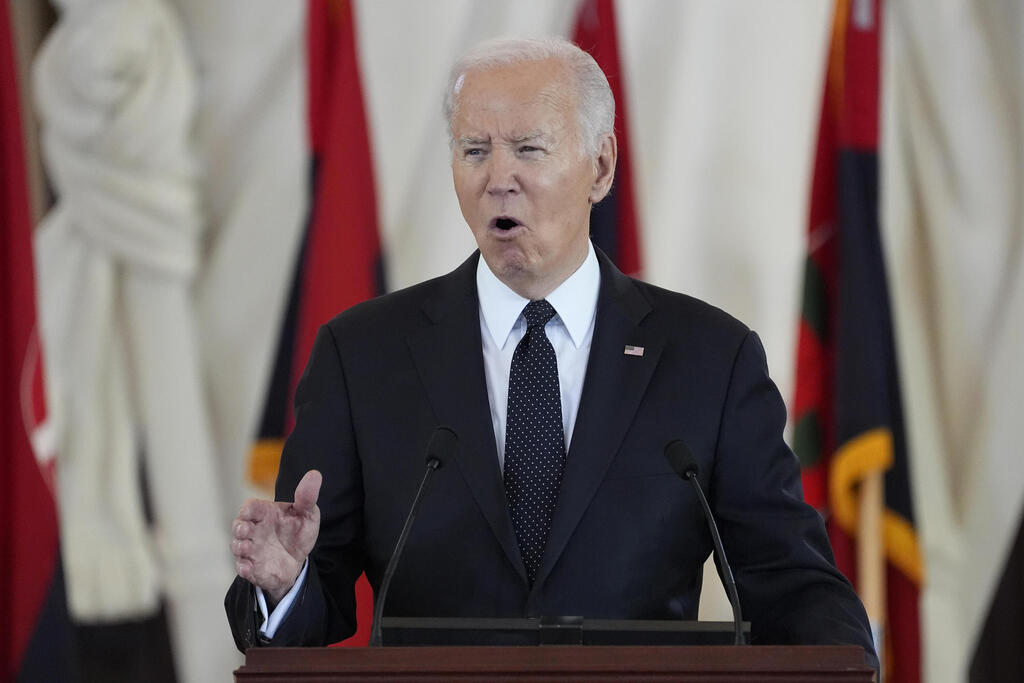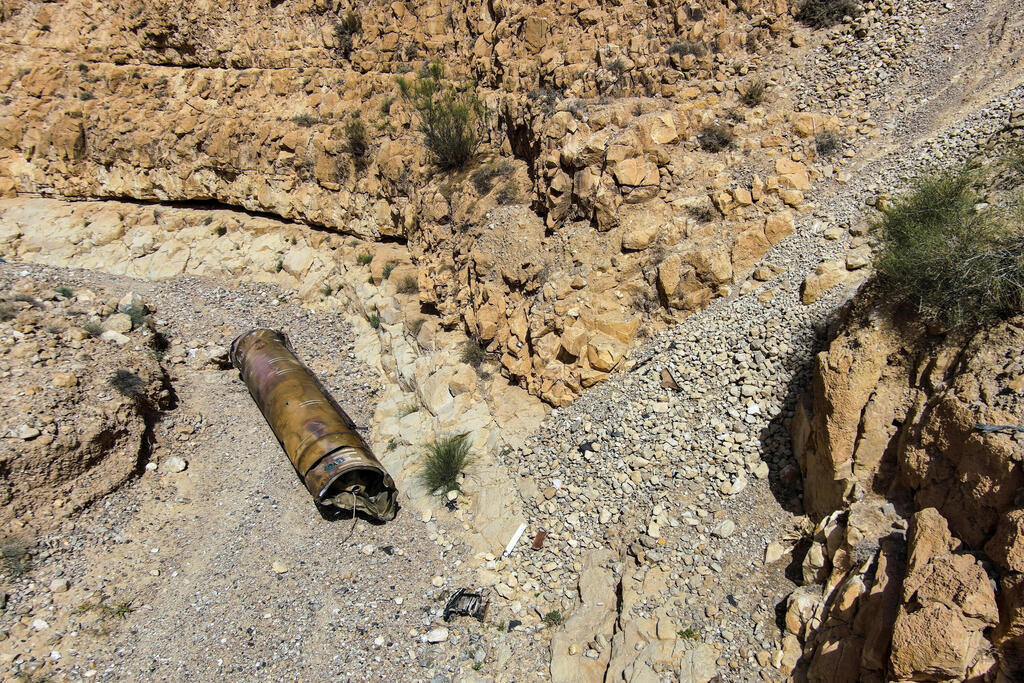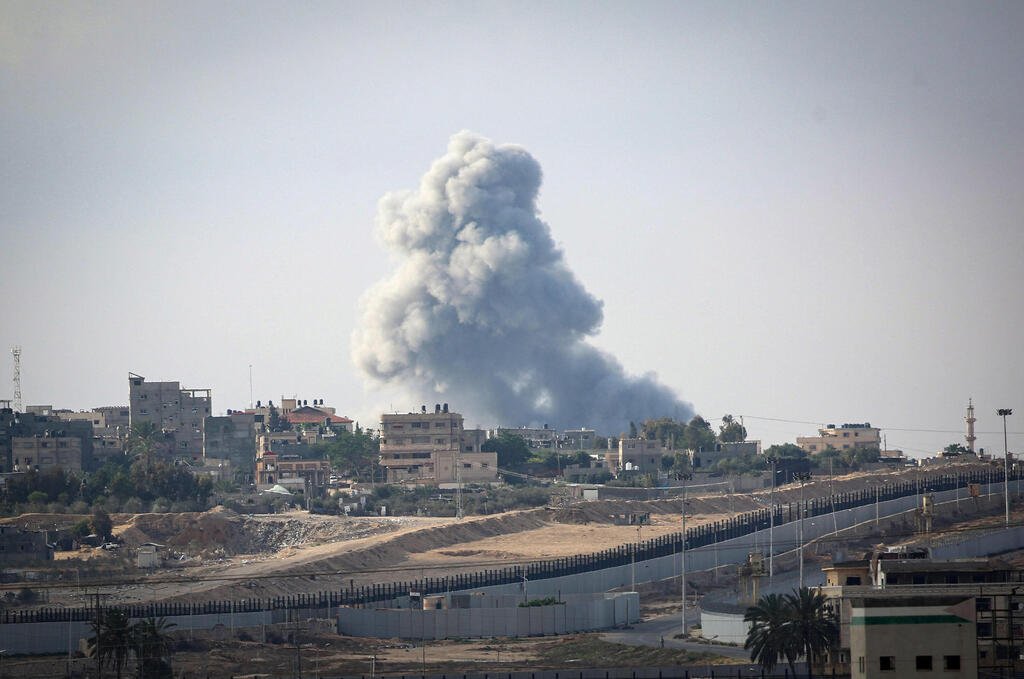In an interview with CNN on May 8, U.S. President Joe Biden said that he would refuse to send more bombs and artillery shells to Israel if it proceeds with an operation in Rafah. The warning came after he decided to put on hold the delivery to Israel of a shipment of 2,000- and 500-pound bombs (907kg and 227kg respectively)—the types of weapons that the IDF reportedly uses in Gaza.
According to the London Guardian also on May 8, U.S. officials made clear that the pause would not be a one-off if the Rafah offensive went ahead: other arms deliveries that had already been approved could be delayed, and shipments waiting for approval could also face obstacles, such as a pending consignment of 6,500 joint direct attack munitions (JDAMs), which convert freefall “dumb bombs” into precision-guided munitions.
Many commentators charged that Biden’s warning to Israel to forgo a full-scale attack on Rafah was decisively motivated by politics, specifically the upcoming U.S. elections. Accordingly, the president is deftly worried that a civilian “blood bath” in Rafah, where more than a million Palestinians have sought shelter, will doom his reelection chances as it will scuttle his support among “progressives” and Muslim voters. It was called a classic example of throwing a close ally under the bus on the grounds of political expediency.
Yet less attention was paid to the doctrinal and operational implications of the new U.S. policy. The Biden “doctrine” comprises two elements:
First, he said, “We’re not walking away from Israel’s security. We’re walking away from Israel’s ability to wage war in [populated] areas.”
Second, Biden clarified that the U.S. will continue supplying Israel with Iron Dome missile interceptors and other defensive weapons to ensure that the Jewish state can respond to attacks from adversaries across the region.
On the basis of the very announcement of the Biden “doctrine,” it would be impossible to fault Hamas leadership if it is now certain that time is working in its favor—a cardinal tenet of its entire murderous strategy. In fact, considering the “doctrine’s” first principle, Hamas may be expecting the IDF to soon run out of the type of ammunitions that cause it the highest number of casualties and the greatest loss of hideouts and other assets.
Worse yet, the first element of the Biden “doctrine” in effect reaffirms Hamas’ strategy of embedding its terrorists and their weapon systems among the civilian population. As John Spencer, chair of urban warfare studies at the Modern War Institute at West Point, wrote in the academy’s January 18, 2024, issue, the Gaza conflict marks “the first war in which a combatant has made its vast underground network a defining centerpiece of its overall political-military strategy… Hamas has built a tunnel network to gain not just a military advantage, but a political advantage, as well.
"Its underground world serves [a range of] military functions …but also an entirely different one. Hamas weaved its vast tunnel networks into the society on the surface. Destroying the tunnels is virtually impossible without adversely impacting the population living in Gaza. Consequently, they put the modern laws of war at the center of the conflict’s conduct. These laws restrict the use of military force and methods or tactics that a military can use against protected populations and sites such as hospitals, churches, schools, and United Nations facilities.”
By curbing the IDF’s ability to go after Hamas’ hideouts in civilian populated areas, Biden in effect is assuring that this terrorist army, as well as others like Hezbollah, continue to rely on their enemy's adherence to the rules of warfare as their force multipliers. Hamas has built its entire strategy around the precept that the IDF will hold fast to, and in turn, be constrained by, these rules. If the Gaza campaign was about to shake the foundation of this diabolical terrorist plot, the belief in its efficacy has just been restored by the Biden “doctrine.”
Additionally, to the extent that civilians were killed in Gaza by the IDF’s operations, their deaths were unintentional. They were never the expressed target of the IDF. This is, of course, in stark contrast to Hamas which years before the massacre of October 7 was already targeting Israeli civilians by firing thousands of rockets exclusively into their population centers. Civilian deaths in Gaza happened mainly as “collateral damage”— the result of use of long-range weapons, such as artillery shells and aerial bombs, to soften Hamas strongholds hidden in urban areas prior to the IDF’s infantry overrunning them. Any other tactic would likely result in scores of IDF casualties—precisely as Hamas would want.
The Biden doctrine, by ignoring these facts as well as the IDF’s elaborate procedures undertaken to spare Gaza civilians, is indirectly pressuring Israel to modify its battlefield plans, exposing its soldiers in the process. As such, Biden is most certainly playing into Hamas’ hands.
Moreover, the question arises as to whether striking terrorists by air when hiding among civilians following committing a massacre will now be subject to U.S. approval. Or, if preemptive action against terrorists’ hideouts in urban centers will be regularly scrutinized by the Biden Administration even in “ticking bomb” situations.
The second principle of the Biden “doctrine,” which pledges to continue providing Iron Dome anti-missile interceptors and other such defensive systems, is in line with his oft-repeated mantra that U.S. commitment to Israel’s defense is “ironclad.” The problem is that this pledge is meant literally—Israel can rely on the U.S. coming to its defense if necessary ONLY if it is attacked. If, on the other hand, Israel uses American weapons offensively, especially against targets hidden among civilians, the IDF will be operating on its own and can even expect U.S. censure.
A recent example of acting on this commitment occurred on April 14, when Iran unleashed a barrage of drones, cruise missiles and ballistic missiles against Israel. In response, the U.S. took an active role, as well as mobilized other countries in intercepting the Iranian assault.
As the Iranian attack showed no defense is hermetic. While Iran’s drones and cruise missiles were successfully intercepted, 9 ballistic missiles did penetrate the Israeli defenses. Yet, according to Biden, rather than the IDF launching a preemptive strike to mitigate the threat and have the defense deal with fewer leftover targets, Israel should avoid any offensive move and solely rely on its missile defenses. It should bear the risks, otherwise, America’s logistic and operational support might not be forthcoming.
The question remains, however, what if the missiles were to carry nuclear warheads?
The mere fact that such and other questions have not been raised, at least publicly, strongly indicates the policy shift is motivated by political considerations. There is no indication that a careful study of the strategic and tactical implications of the new approach was ever performed. Otherwise, how can it be explained that the administration is considering a pause in the supply of kits to convert “dumb bombs” into precision-guided “smart” munitions while simultaneously complaining that Israel’s aerial bombings caused extensive collateral damage in Gaza?s
However, assuming the Biden principles continue to stand, they would have a strategic impact. Combined, the two “legs” of the “doctrine” indicate Biden’s support for Israel is conditioned on the IDF “genie” being put back into the “bottle.” If October 7, transformed Israel’s military thinking from relying on defensive measures, such as its anti-missile defenses, to assure its security to an offensive doctrine as evidenced in Gaza, Biden is striving to set the clock backwards. Taking a page from the book of his “coreligionist” President Barack Obama, he aims to have the IDF assume a purely strategic defensive doctrine so that America is not surprised by Israel exercising the initiative.
Yet Biden has now gone a step further trying to also hem in the IDF tactically.
In the short term, the U.S. administration fears Israeli military activism could potentially ignite a regional conflict that could cost Biden his reelection chances. Such a scenario is especially likely if, following the Gaza campaign, the IDF turns to deal with the Hezbollah threat in the north. In the longer run the Americans are worried an IDF offensive doctrine could end up jeopardizing American presence and interests in the region, for example as a consequence of an Israeli preemptive attack on Iranian nuclear sites.
However, the costs to Israel could be prohibitive. President Biden essentially pulled the rug from under the emerging Israeli strategy which could be dubbed “assured survival.” Apparently taking its cue from the U.S. nuclear “massive retaliation” doctrine of the 50s and 60s, the Israeli version sought to address Israel’s increasingly precarious strategic environment and guarantee its existence by promising an attacker a credible punishment of obliteration albeit using conventional arms.
For example last August, Defense Minister Yoav Gallant warned that Israel would “return Lebanon to the Stone Age“ if provoked by Hezbollah. Yet in view of the Biden “doctrine” the “assured survival” approach might not be feasible anymore and would require reassessment. Even worse, this rethink is being forced on Israel during war and despite the widely-shared conviction that “Never Again is Now” brought about by the October 7 massacre which, for the first time, turned the operational implementation of the new defense concept into a sine qua non.
Biden’s insistence on fighting by the rules may seem a noble enterprise, yet it is unquestionably driven by fleeting political calculus. Given that the Free World is today facing perhaps the greatest challenge to its survival since WWII, however, the stakes are too high for such antics. The threats posed by the bandit regimes in Russia and North Korea, the fanatic Islamists in Iran and the Hamas and Hezbollah terrorist armies, are real and growing. Not only are these belligerents well versed in exploiting the adherence to the rules of war to their advantage, but they increasingly collaborate strategically so as to fuel their relentless drive to destroy the West. Yet, instead of uniting the Free World to stand up to this imminent threat, Biden opted to ostracize and encumber the most capable force actually fighting to repel this mortal danger.
Dr. Avigdor Haselkorn is a strategic analyst. He has been published widely on issues of national security.







